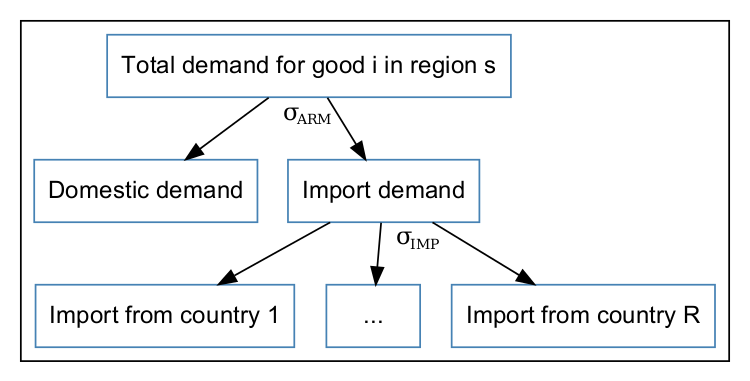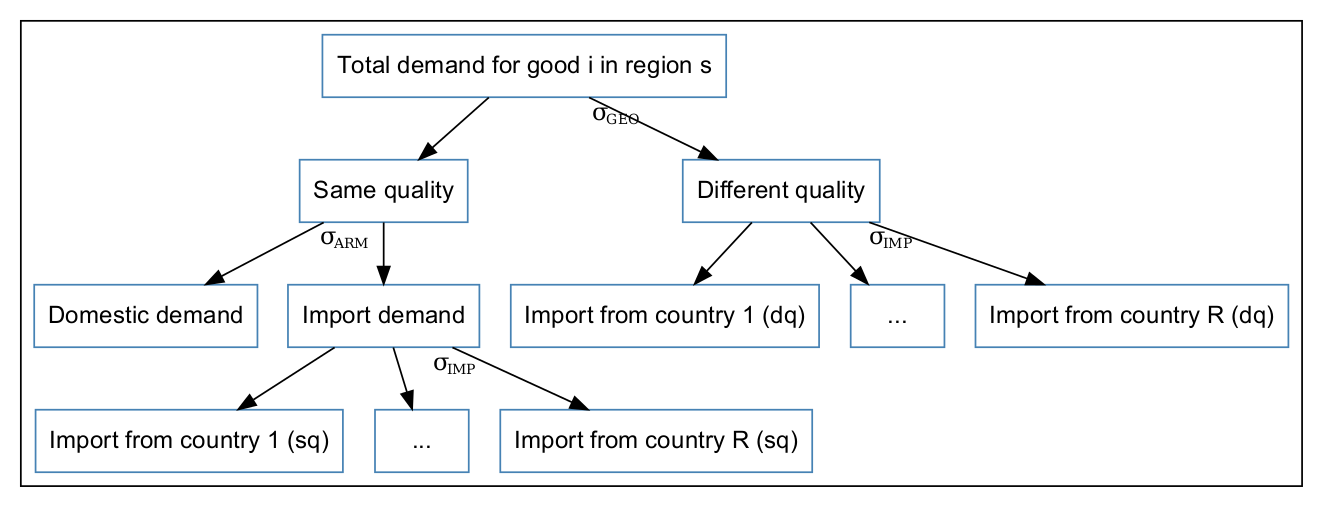Trade #
In MIRAGE-e, final demand, intermedate demand and capital good demand for good $i$ are aggregated to form total demand $DEMTOT_{i,s,t}$:
(Standard) Armington assumption #

By default, the regional demand in MIRAGE-e uses a standard Armington-type specification using CES functions, with a home bias: it is easier to switch between imports of different origins than between domestic production and imports.
The value of elasticity $\sigma_{IMP}$ is sourced from the GTAP database, while other elasticities will follow the $\sqrt{2}$ rule:
Imperfect competition #
When the sector is configured as imperfectly competitive, the demand for good $i$ from $r$ to $s$ is a CES aggregate of each variety, with an elasticity following the $\sqrt{2}$ rule.
(Optional) Quality differentiation #
 Importance in trade of vertical
differentiation and specialisation across quality ranges has been widely
illustrated (see e.g. [(:harvard:Font97)], [(:harvard:Gree00)]).
Even though it is not easy to model nor quantify, this is an important
device as far as analysing the nature and intensity of competition is
concerned.
Importance in trade of vertical
differentiation and specialisation across quality ranges has been widely
illustrated (see e.g. [(:harvard:Font97)], [(:harvard:Gree00)]).
Even though it is not easy to model nor quantify, this is an important
device as far as analysing the nature and intensity of competition is
concerned.
This is why a further CES nesting level can be added to the subutility function for some sectors of the aggregation, distinguishing between two quality ranges, defined on a geographical basis: goods produced in a developing economy are assumed to belong to a different quality range than those produced in a developed economy (the demand nesting is displayed in the figure below). The choice of substitution elasticities (the one between qualities is inferior to the Armington elasticity) implies that goods that do not belong to the same quality range are less substitutable than goods from the same quality range. This means for instance that, within a given sector, goods from a developing country compete more directly with goods from any other developing country, than with goods from any developed country.